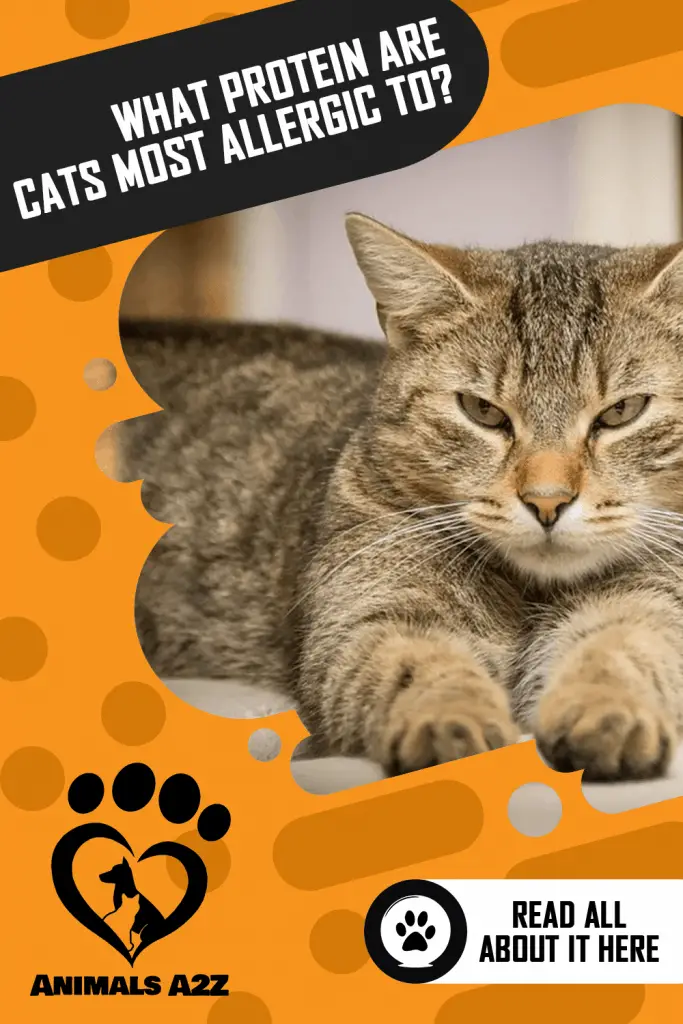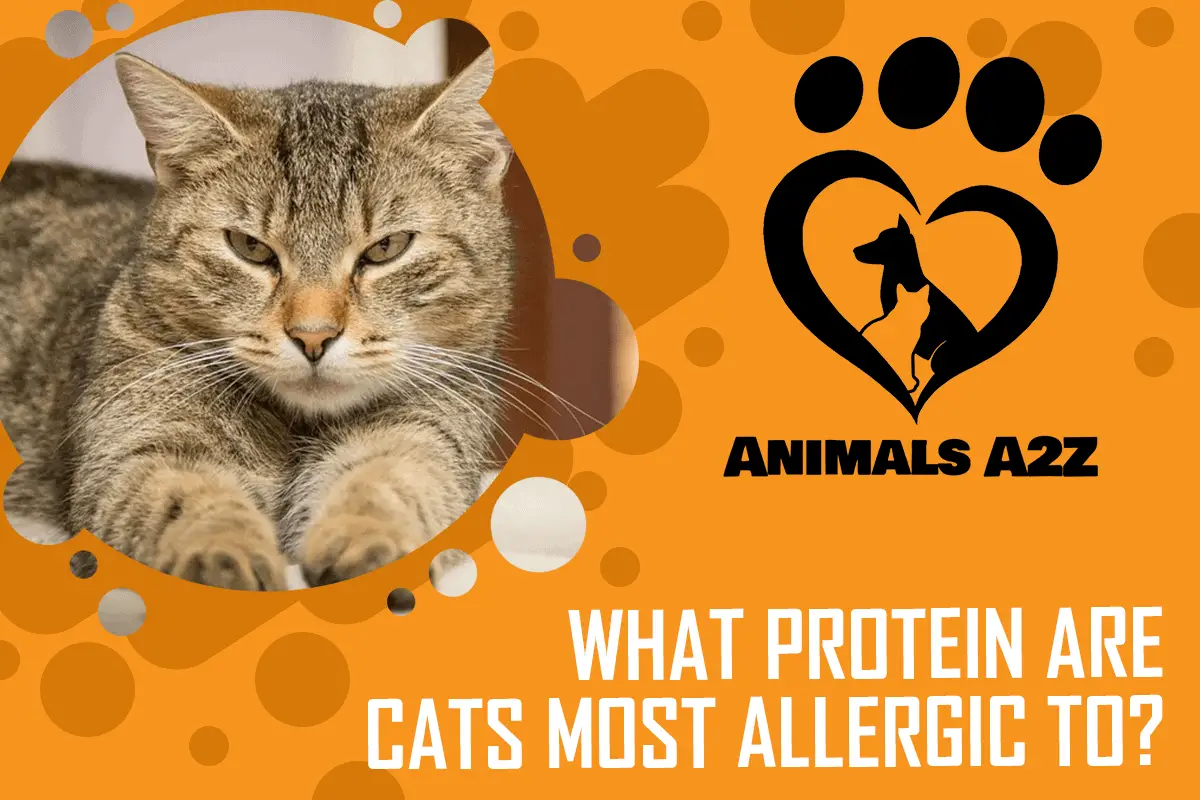Food allergies happen when the immune system of a cat misidentifies a protein as an invader instead of a food item, which triggers an immune response. This response could result in diarrhea and vomiting in some cats, while it might cause skin conditions and itchy ear or skin in others.
Some unlucky cats will also have both gastrointestinal and skin symptoms. But bear in mind that food allergies also have to be distinguished from many other common causes of these problems.
Table of Contents
What Foods Are Cats Allergic to?
For a cat to develop allergies in food, he must be previously exposed to that particular food. A cat can’t develop a food allergy that it hasn’t been previously exposed to. What cats are most allergic to in cat food are often protein from meat sources like fish, chicken, beef, and dairy products.
However, only limited research has been done in this area, so chances are there might be other allergens that are not identified yet.
How Will My Vet Diagnose Cat Food Allergy?
The extreme itching associated with allergies in food can also be a result of other conditions like a yeast infection, bacterial infection, mites, or other allergies. Thus, testing is necessary to determine the main reason behind the skin condition of your cat.
According to experts, the most reliable food allergy diagnostic test is a food trial. It involves feeding your cat a special food, one that doesn’t contain any protein that your feline friend has already been exposed to, for six to eight weeks. A cat food trial diet might take these forms:
Commercially-Available Novel Protein Diet
This diet doesn’t contain any product that was present in the previous foods of your cat.
Hydrolyzed-Protein Diet
In this diet, the protein content is broken down into a very small size so that it will not be recognized by the immune system of your cat.
Home-Cooked Novel Protein Diet
This diet also doesn’t contain any product that was already present in the previous diets of your cat.
With the help of your trusted veterinarian, you can be able to determine the most appropriate option for your feline friend.
While your furry pal is on a particular food trial, he must only eat the food recommended by your vet. It’s very important that no other edible products, supplements, or treats be fed during the entire food trial. You should also be vigilant when cleaning dishes off your table after every meal because if your cat licks a plate clean, it might interfere with the food trial’s end result. During the food trial, your cat could only receive the prescribed water, food, as well as unflavored prescribed medications.
Treatment of A Cat’s Meat Protein Allergies
The most cost-effective, effective, and easiest way of treating cat meat protein allergy is food avoidance. Your vet will prescribe a diet basing on the needs of your cat. While your feline friend is on the recovering stage of the initial allergy, your vet may prescribe antihistamines and corticosteroids to control the itching.
However, if the vigorous itching of your cat has already caused him to develop skin infections, then your vet may prescribe an antibiotic temporarily in order to eliminate the bacterial infection.
Recovery of A Cat’s Meat Protein Allergy
A cat will recover from his meat protein allergy if he’s fed with the right diet. To avoid food allergies in cats, make sure to avoid feeding him table scraps, treats, as well as other food that wasn’t prescribed by your vet.
[crp]
Common Questions About Food Allergies in Cats
How Can You Tell if Your Cat Has a Food Allergy?
In the case where your cat has some kind of food intolerance or food allergy, you may notice these most common signs in your cat:
- Flatulence
- Diarrhea or vomiting
- Hair loss or repeated scratching
- Inflamed and/or red skin
- Chronic ear problems
- Sneezing, wheezing, and coughing
If you see these signs in your cat, it’s a really great idea, that you bring him to your vet.
What Are Cats Commonly Allergic To?
The common cat allergens in food are the ingredients. While allergies to food ingredients like soy, wheat, pork, beef, chicken, and fish are not very common cats, the truth is they can sometimes occur to other cats. Cat food allergies can cause severe itching, most especially around the neck and head, as well as GI problems like diarrhea and vomiting.
How Long Does It Take a Cat to Recover from a Food Allergy?
Your cat can recover from food allergy in two to four weeks. However, the external symptoms like itchy skin can last longer so it’s best to consult your vet regarding this matter. Your vet is the most reliable person to ask to get the best special hypoallergenic diets and medicine for your cat.
Conclusion
If your vet diagnosis a food allergy after a dietary elimination trial with home-cooked diets or veterinary diets, you might be able to manage the condition of your cat afterward with over-the-counter cat diets once the allergen is identified. However, you need to bear in mind that you can probably see a flare-up the moment you mistakenly bought a contaminated bag.


